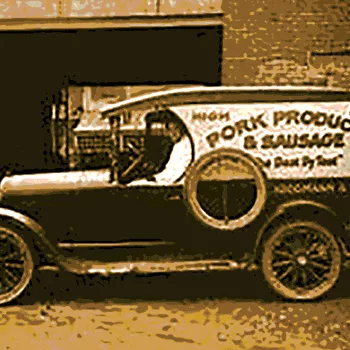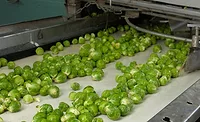Food Truck Commissary: The Foundation of a Mobile Business

The number of people eating at mobile food trucks continues to increase across the country. Cities, suburbs and rural communities are enjoying the popularity of food trucks and the diversity of food they provide. What started as an urban phenomenon has expanded to midsize cities and small towns, creating a greater opportunity for food trucks to attract and serve new customers. Brick-and-mortar restaurants are also using food trucks to franchise their brand, advertise and promote the food they serve, and test new menu items and concepts.
As the mobile food industry continues to evolve, most food truck owners are traveling longer distances, increasing hours of operation and operating at a variety of events to serve their customers. This increase in demand creates both economic and food safety/quality challenges for the mobile food industry.
To meet these challenges, food truck owners are increasingly using commissaries as their base of operation. Many states and municipalities already require food trucks to work out of a licensed commercial commissary. A commissary could be a licensed commercial kitchen, restaurant, shared-use kitchen or any foodservice operation that is licensed and inspected by the local health department or a state agency like the department of health or agriculture.
The location, type and size of the commissary will determine the services that are provided. However, to meet the minimum standards required by most state and municipal health departments, a commissary needs a three-compartment sink, handwashing sink and dry and cold storage, and have a foodservice operation license. A full-service commissary would provide the above plus have additional services that include but are not limited to fresh-water fill-up, wastewater disposal station, electric hookup for overnight truck parking, propane filling station, food preparation tables, food processing sink and bagged ice. Some commissaries also supply food, beverages and other supplies that food trucks can purchase on a daily basis. There are even commissaries that assist with event and location placement, marketing and advertising, as well as business support services.
Jim Pashovich, owner of Pitabilities Mobile Food, uses the Food Fort in Columbus, OH, as his commissary for his mobile food business. Jim has three food trucks and employs 25 people to help operate the business year-round. He says, “The Food Fort is the base of my business operation, which provides me the capacity and infrastructure to serve my customers high-quality, safe and delicious food.” Jim launched Pitabilities Mobile Food in 2011 with one truck and now operates three food trucks under the same banner. “In order to continue to grow my mobile food business and meet all regulatory requirements and food safety/quality standards, I need my employees and trucks to be located at the same place,” he says.
Andrew (Andy) Schmidt, owner of Schmidt’s Sausage Truck, operates two food trucks in central Ohio. The Schmidt family began delivering real German food in 1886, adding a fleet of trucks in the early 1900s. Andy is part of the fifth generation that is proudly carrying on this great family tradition of delivering food to their customers. Besides the two food trucks and a family restaurant, the Schmidt family operates a catering facility that is also used as a commissary for the mobile food business. Andy states, “Before getting involved in the food truck business, we were looking for new and innovative ways to grow our family food business. We decided to launch a food truck as a way to take our great food to the people throughout central Ohio and beyond.” The first truck was launched in 2012 and was an immediate success. It was followed by a second truck in 2014. To have a successful mobile food business, Andy knew they would need a commissary to use as their base of operation. The Schmidt Catering facility was an ideal choice. The facility has indoor parking for the trucks and provides the infrastructure and storage capacity needed to operate the trucks safely and profitably.
Mobile food truck commissaries can provide a great foundation to build and grow a mobile food business. The economic advantages of having a base of operation are the following:
• Employees have the opportunity to report to a central location. This improves communication between management and staff, and gives employees a chance to talk with each other before starting operation.
• Food can be delivered to the commissary and received at a time convenient to the food truck business.
• Food and supplies can be stored at the commissary, which allows the business to buy in bulk, thus reducing costs. The food truck can be easily restocked each day before departing, eliminating the need to drive to a store or supply company.
• Most commissaries are centrally located, allowing easy access to locations and events where the mobile food business operates.
• Some repair work and preventive maintenance can be accomplished at the commissary, thereby ensuring the overall mechanical condition of the truck.
• Some commissaries provide freshwater filling, proper wastewater disposal and the refilling of propane tanks, saving time and money over traveling to facilities that provide these services.
Also, there are food safety and quality advantages of using a commissary:
• Restrooms and handwashing facilities are provided by the commissary to promote good employee hygiene.
• Food preparation areas are available, allowing food to be prepared in a controlled environment with access to handwashing sinks and food processing sinks.
• Food deliveries can be monitored for temperature control and to ensure they are delivered in a good and wholesome condition from an approved source.
• A large three-compartment sink at the commissary allows for the cleanup of utensils, pots and pans, etc. to be completed at the end of the day’s operation. This saves time during operation and also provides for adequate wash, rinse and sanitizing processes to occur.
• Storage of product and supplies at the commissary alleviates overstorage in the food truck, which allows better access to the hand sink as well as making it easier to clean.
Finding the right commissary is an integral part of a successful mobile food business. The most important aspects of a commissary are location and type of services provided. Contact the local health department for the regulations and requirements governing licensed commissaries in the community. A full-service commissary will help enhance the economic viability of the food business while addressing the challenges of providing safe, delicious food to your customers.
Robert J. Kramer, R.S./REHS, has over 42 years’ experience in food safety. He retired from the Columbus (OH) Public Health Department after 35 years and is now director of food safety and food services for the Food Fort at the Economic and Community Development Institute in Columbus, OH, and is vice president at Savour Food Safety International Inc.
Looking for quick answers on food safety topics?
Try Ask FSM, our new smart AI search tool.
Ask FSM →








